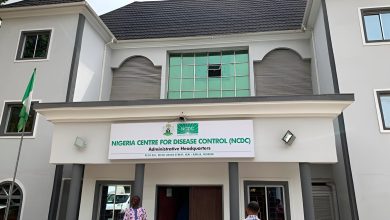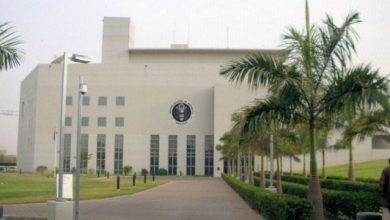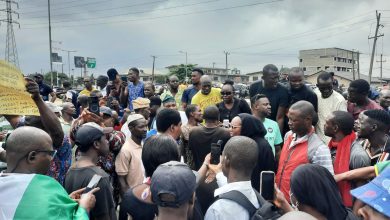Millions at risk in flood-hit Nigeria; relief chief shows hunger in Burkina Faso |

Infrastructure and farmland have also been damaged, said a statement issued on behalf of Secretary-General António Guterres, worsening the cost of living across the country.
He sympathized with the Nigerian government and the affected families, adding that the UN is continuing “commitment to support the Nigerian Government in this challenging time.”
More than 1.5 million children are at risk as devastating floods hit Nigeria.
The United Nations Children’s Fund, UNICEF, says that 60 percent of those in need are children, who are at increased risk of water-borne diseases, drowning and malnutrition.
The flood has affected 34 of the 36 states in the country, and more than 600 people have lost their lives, with 200,000 houses either partially or completely destroyed.
In the northeastern states of Borno, Adamawa and Yobe, a total of 7,485 cases of cholera and 319 related deaths were reported on October 12, and the rains will continue for several weeks, with humanitarian needs is rising.
‘Excessive harm’
Cristian Munduate, UNICEF Representative in Nigeria said, “Children and young people in flood-affected areas are in a very vulnerable situation.
“They are especially at risk of waterborne diseases and emotional and psychological? UNICEF works closely with the Government and other partners to provide life-saving assistance to those most in need. ”
The most urgent needs for children include health, water, sanitation, and hygiene; as well as accommodation and food.
Humanitarian needs to ‘get up fast’ in Burkina Faso: Griffiths
The UN’s emergency aid chief, Martin Griffiths, completed a brief fact-finding mission to nearby Burkina Faso on Friday, saying it was a critical time for the landlocked West African country.
“People’s needs are rising fast. A quarter of the population, or some 4.9 million people need emergency assistance, a surprising 40 per person more than at the beginning of the year”, he said. “One in ten Burkinabe are displaced from their homes through devastating conflict and climate change.”
Growing insecurity from armed groups operating across much of the Sahel, and blockades in many areas have left communities isolated, and with inadequate supplies of humanitarian aid.
“To provide essential life-saving relief to those in need with the level of dignity and respect that everyone deserves, additional resources are urgently needed. Our US$805 million response program in Burkina Faso is less than a third of the funding.”
Food of leaves and salt
Aid leader Griffiths said he would meet some of the victims in the town of Djibo, who had been eating “only leaves and salt, for weeks.”
“The situation is so bad women are risking their lives, crossing control lines at night in search of food. I spoke to local leaders who urged the authorities to open the roads for food, water, and essential medicine to reach them, to save lives. There are peaceful initiatives to find solutions and there is still hope. The people of Djibo deserve more respect, praise and support in this hour of great need. “
He also met Burkina Faso’s new military chief, Ibrahim Traoré, who was sworn in on Friday and vowed to defeat terrorism in the north, replacing the previous leader who took power in January.
Mr Griffiths said he had stressed the need for the protection of civilians, including for those caught up in the conflict, and asked the transition president to ensure “a an enabling environment for humanitarian services and enables access to peopleso that we can reach every Burkinabé in need everywhere in the whole country.”
In the first nine months of this year, the UN and our humanitarian partners brought food aid to 1.8 million people and supported 740,000 people with access to health in areas where health facilities are closed and where medical supplies are lacking .
USG Martin Griffiths speaks to displaced people in the town of Djibo in northern Burkina Faso, where hundreds of thousands of people have sought refuge due to severe conflict and climate change.







